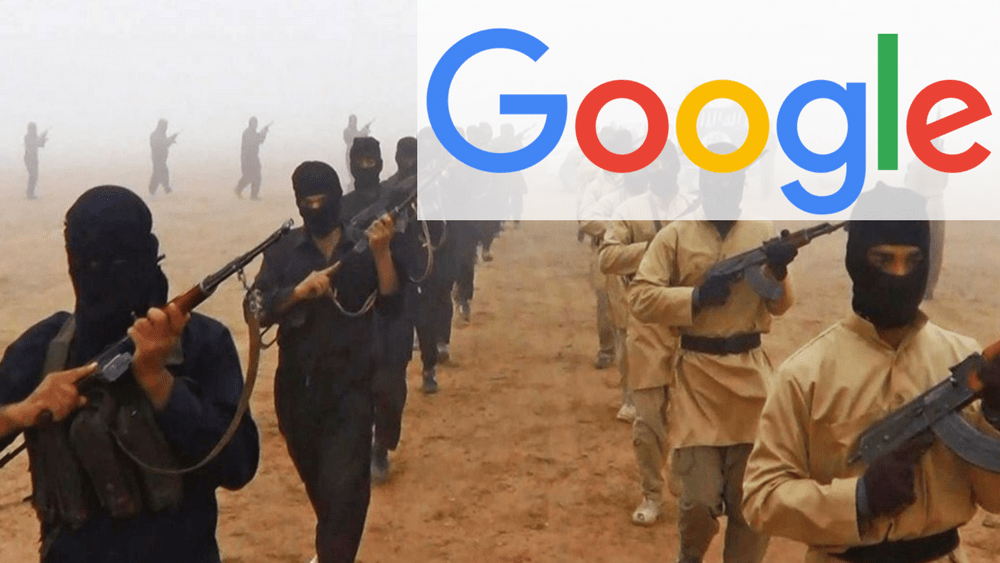Google’s war on terror
Will the casualties be freedom of religion and speech?
Internet giant Google has announced it will increase its efforts to identify and remove extremist material from YouTube, following weeks of terrorist attacks across the world.
Kent Walker, general counsel for Google, wrote on Monday in the Financial Times, an international business newspaper: “There should be no place for terrorist content on our services. While we and others have worked for years to identify and remove content that violates our policies, the uncomfortable truth is that we, as an industry, must acknowledge that more needs to be done. Now.”
“We think this strikes the right balance between free expression and access to information…” – Kent Walker
The search giant will introduce four new steps to strengthen its efforts. Firstly, Google plans to increase its use of technology to identify extremist and terrorism related videos. More engineering resources will be devoted to helping Google identify problem content, faster.
Google also will increase the numbers of independent experts in YouTube’s Trusted Flagger programme. In this programme, human experts help make nuanced decisions about the line between ‘violent propaganda’ and ‘religious or newsworthy speech.’
“This allows us to benefit from the expertise of specialised organisations working on issues like hate speech, self-harm, and terrorism. We will also expand our work with counter-extremist groups to help identify content that may be being used to radicalise and recruit extremists,” wrote Walker.
Thirdly, Google will take a tougher stance on videos containing inflammatory religious or supremacist content that does not clearly violate the current policies. These videos will appear behind an interstitial warning, and will not be monetised, recommended or eligible for comments or user endorsements. “We think this strikes the right balance between free expression and access to information without promoting extremely offensive viewpoints,” wrote Walker.
“We’ll keep working on the problem until we get the balance right.” – Kent Walker
Google also announced it will expand its role in counter-radicalisation efforts, using “targeted online advertising to reach potential Isis recruits, and redirect them towards anti-terrorist videos that can change their mind about joining.”
Walker continued, “Collectively, these changes will make a difference. And we’ll keep working on the problem until we get the balance right. Extremists and terrorists seek to attack and erode not just our security, but also our values; the very things that make our societies open and free. We must not let them. Together, we can build lasting solutions that address the threats to our security and our freedoms.”
Secular media has welcomed the announcement, but Michael Kellahan, executive director of Australia’s Freedom for Faith, a religious freedom organisation, told Eternity: “The risk is that a vague policy around extremism starts capturing things which are not actually terrorism; not actually to do with violence. When you have a bad religion doing terrible things, there is a risk of people doing good religious stuff [being] caught in increasing monitoring of the bad religion.”
…[restrictions] pose risks for religious people who are not involved in extremist activity.
Kellahan worries that to restrict freedom of speech and freedom of religion poses risks for religious people who are not involved in extremist activity. He points to the UK where, in 2015, Tory (Conservative) MP Mark Spencer argued that anti-terror powers should be used against Christian teachers who teach children that gay marriage is wrong.
While Spencer’s idea didn’t eventuate, similar pressure on religious speech has seemingly increased globally, in relation to Christians in public roles. Last week, the leader of Britain’s Liberal Democrats, Tim Farron, resigned his position because of tension between his evangelical Christian faith and the media scrutiny upon politicians. Two weeks ago in the US, Russell Vought, a Trump nominee for deputy director of the Office of Management and Budget, was repeatedly criticised by Bernie Sanders for his view that faith in Jesus is the only way to heaven. Sanders went so far as to imply that Christians who believe that should be excluded from holding public office.
Google’s announcement mirrors the dilemma that western states have been facing for some time: how to balance security and freedom.
Freedom of religion and freedom of speech have never been absolute rights.
“When you have groups who are fundamentally opposed to the whole liberal democratic project, then there’s a long line of history that says at that point you need to be able to restrict freedom in order to protect others,” says Kellahan.
He points out that freedom of religion and freedom of speech have never been absolute rights, but have always needed to be balanced with other rights, including the right of a state to maintain democracy and order.
Lyle Shelton, managing director of the Australian Christian Lobby, told Eternity: “We would all like to see the internet remain an open and free platform for a range of use, but clearly some people are using it to incite violence and hatred and that’s clearly not appropriate.”
“So long as it’s respectful, there needs to be freedom of speech.” – Lyle Shelton
Shelton acknowledges that legitimate free debate could be caught up in these new regulations, but says, “I certainly hope there are no implications for freedom of speech and religious freedom.”
“Google needs to take responsibility as the platform provider; it is important we maintain the cherished values of freedom of speech, even when we might find it offensive. So long as it’s respectful there needs to be freedom of speech.”


